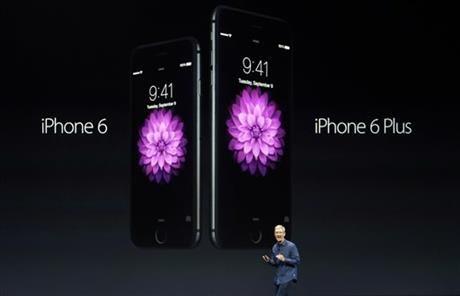As soon as Apple announced the Rose Gold iPhone 6s Plus, anxiety rose in those whose plans don’t allow users to upgrade phones at a moment’s notice. These people were mortified they could not participate in Christmas in September.
Christmas in September is an annual ritual where unboxing a new iPhone and posting pictures of the phone in all its unadulterated glory to Facebook is the ultimate status symbol.
Logging onto Facebook the day after the first phones are delivered and seeing statuses like, “Facebook on the new iPhone is seaux much better” or “Does anybody know how to use the new iPhone, it’s seaux confusing” is demoralizing.
It’s upgrade culture.
According to the Guardian, upgrade culture is driven by major electronic manufacturers releasing “newer models that purport to render older ones if not redundant then somehow lacking” every autumn.
Phone companies realized purchasers no longer wait to buy phones once their two-year contracts end and their business practices reflect this change. AT&T instituted the Next program. The Inquisitr notes this program feeds “our constant submission to that feeling of ‘ooh, shiny’ when we see a new phone or device that we want” by allowing users to upgrade their phones on a yearly basis. T-Mobile has their JUMP!, Just Upgrade My Phone, program which allows the same upgrades.
These plans fell flat on their faces when they were first announced, especially AT&T’s. CNET detailed “most individuals will pay about the same as they did under the old pricing plan”. The company also made it more expensive to add new lines under this plan. Compounded with the larger data usage under the family pan, the Next plan does not save money. However, it does allow people to have the new iPhone every September and for many, that benefit outweighs the cost.
Upgrade culture also affects other areas of life.
There was a recent spike in car leasing, as millennial shoppers begin to shop for cars on their own.
Fonebank.com notes the cultural shift toward non-ownership consumption started during the 2008 fincial crisis as the “consumer began to embrace the idea of buying access to a product or service, rather than buying the product outright.”
Constant access to the “new and improved” changed the way the world works and the terminology used. No longer do people book flights and expect their seats to stay the same. Now, passengers sit on the edge of plastic seats in terminals waiting on the boarding agent to proclaim seat upgrades are available.
iPhone users are seen as sophisticated, and Android users are seen as more technologically advanced. The culture surrounding phones led to social media debates between #TeamiPhone and #TeamDroid. Having the newest devices to carry on these discussions are almost more important than the arguments themselves.
Shoutout to all the people who own the iPhone 6s Plus as they have a leg up right now. However, the iPhone 7 Plus will have its time. Just wait.
Garrett Hines is a 21-year-old political science senior from Monroe, Louisiana. You can reach him on Twitter @garrettH_TDR.
OPINION: Upgrade Culture creates a need for immediate gratification
October 7, 2015

Apple CEO Tim Cook introduces the new iPhone 6 and iPhone 6 Plus on Tuesday, Sept. 9, 2014, in Cupertino, Calif.
More to Discover









